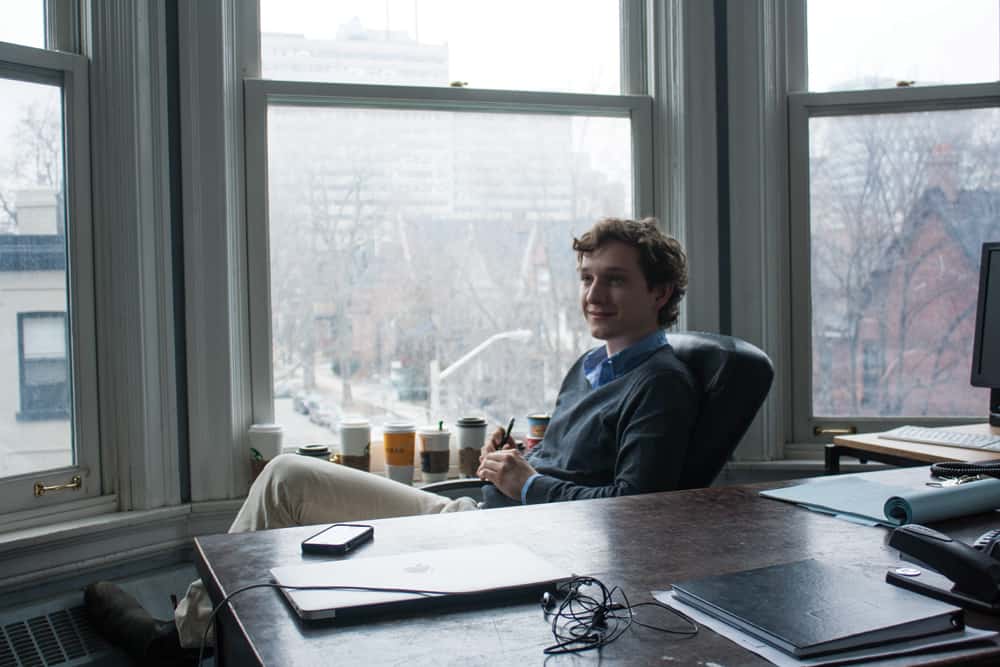The best things in life are difficult. Running a student newspaper certainly is.
After making deep cuts during the 2008 financial crisis, we were just starting to feel financially secure again when our national advertising agent went bankrupt last spring. Its replacement, a start-up called FREE Media, is promising and ambitious, but print advertising revenue will never be what it once was.
Last year’s levy increase helped to compensate for the losses in advertising, but the new projects we had hoped to begin were postponed to sustain regular operations.
Nevertheless, ingenuity can compensate for penury, and I’m proud that we still launched a new website this year, increased our online publications to twice weekly, and won second-place overall in the Canadian Community Newspaper Awards. That we are competitive with publications that have much larger levies, full time staff, and journalism schools to draw from is a testament to the capacity and dedication of U of T students.
Keeping the lights on and the presses running is an increasingly challenging task, and as advertising declines, we will become more reliant on the financial support of our student members. This means that we are going to have to work even harder to prove the value of this newspaper. I hope we have met that challenge this year. I am confident that under our new Editor-in-Chief, Danielle Klein, we will continue to do so.
As the media landscape changes, the campus newspaper’s niche will be hyper-local. We can’t compete with the professional publications that are available for free on campus and online. Yet, there are probably only two professional journalists in the country covering post-secondary education full-time. We know this campus, and we cover stories that no one else does — stories that matter to students.
Whether you get these stories online or in print doesn’t really matter to me. I have a sentimental attachment to print, but being a newspaper is no longer about producing a newspaper. Our product is journalism, not newsprint. The media doesn’t matter, the message matters.
As a part-time history student and a life-long history nerd, I was delighted to discover this quotation while researching an essay. In 1825, J. T. Delane, editor of the Times, wrote: “The duty of the journalist is the same as the historian…to present to his readers not such things as statecraft would wish them to know, but the truth as near as he can attain it.”
Yet the notion of presenting “all the news that’s fit to print” simply isn’t practical — even in a university of 80,000, there are more stories than pages or reporters.
If you grew up in the ‘90s, you probably learned about constructive criticism as a child. We try to tell stories that are constructive — stories that teach us something. Far more often than not, these stories are critical. Thus, like all journalists, we are constantly obliged to bite the hands that feed us.
Moreover, giving students the opportunity to learn the practice of journalism is part of our mandate. You cannot learn without making mistakes. In this way, it is inevitable that we will occasionally fall short of the standards we set for ourselves.
This is all a perilous business. Nevertheless, I hope that those who want this newspaper to be a weekly yearbook will continue to be disappointed. We will often be critical, because doing so makes this community stronger, and this university a better place.
Yet, as we publish our final issue, my strongest feeling is gratitude. I am grateful to have been able to work as hard as I possibly could at a job that I love. To me, there is no greater privilege.
Gratitude is conspicuously absent from discourse at this university. There truly is more to be grateful for at this university than to criticize. We should continue to push to make this university better, but should also stop to recognize that we are all fortunate to be here.
I also want to express my profound gratitude to the 362 students who volunteered their time, energy, and talent to this publication in the past year. Especially, I wish to thank my brilliant, dedicated, at times challenging, and always-inspirational masthead. Murad Hemmadi deserves eternal gratitude for being my mentor, my conscience, and a pain in the neck.
Finally, I thank every student who pays to sustain this publication and everyone who chooses to read it. I hope you have derived as much satisfaction from reading volume cxxxiv as I have from bringing it to you. But, to tell the truth, I doubt it.
Joshua Oliver | Editor-in-Chief 2013–2014, Vol. CXXXIV


